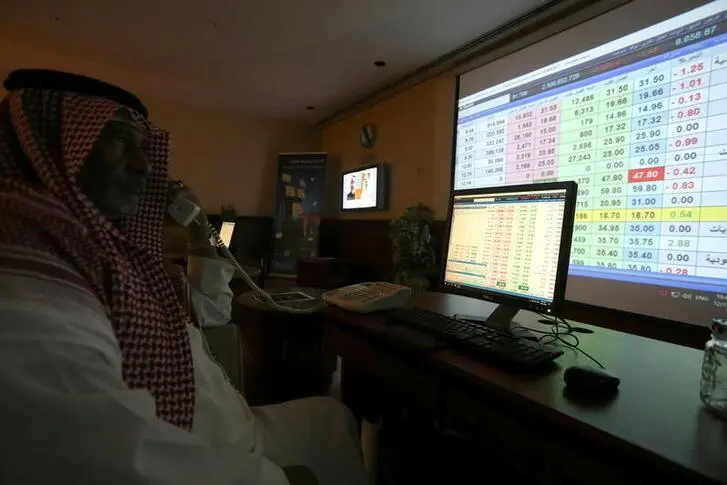PHOTO
Major stock indexes in the Gulf fell in early trade on Wednesday with the Saudi benchmark dropping to an 18-month low on mounting worries about a global economic downturn.
Data released on Monday showed U.S. services industry activity unexpectedly picked up in November, prompting investor speculation that the Fed could keep raising interest rates for longer which could hurt economic growth.
Traders expect a half-point hike from the Fed in its announcement Dec. 14.
Most Gulf Cooperation Council countries, including Saudi Arabia, the United Arab Emirates and Qatar, have their currencies pegged to the U.S. dollar and follow the Fed's policy moves closely, exposing the region to a direct impact from monetary tightening in the world's largest economy.
Saudi Arabia's benchmark index dropped 0.6%, hit by a 0.8% fall in Al Rajhi Bank and a 2.8% decline in Arab National Bank.
Oil futures were little changed in Asia as hopes of improved Chinese demand offset uncertainty about how a Western cap on Russian oil prices would play out, keeping markets on edge after a sharp fall in the previous session.
Dubai's main share index fell 0.3%, with blue-chip developer Emaar Properties losing 0.6%.
In Abu Dhabi, the index slipped 0.5%, weighed down by a 1.4% decline in the country's biggest lender First Abu Dhabi Bank.
The United Arab Emirates' non-oil private sector grew in November at its slowest pace since January, as concerns over a global slowdown weighed on sales and confidence, a survey showed on Wednesday.
The Qatari benchmark lost 0.5%, with the Gulf's biggest lender Qatar National Bank dropping 1.6%.
In the previous session, the index closed 2.6% lower, wiping off its gains for the year.
Asia's stock markets slipped on Wednesday as reality bit on hopes for a soft economic landing in the United States, with big U.S. banks warning of a likely recession. (Reporting by Ateeq Shariff in Bengaluru Editing by Vinay Dwivedi)





















